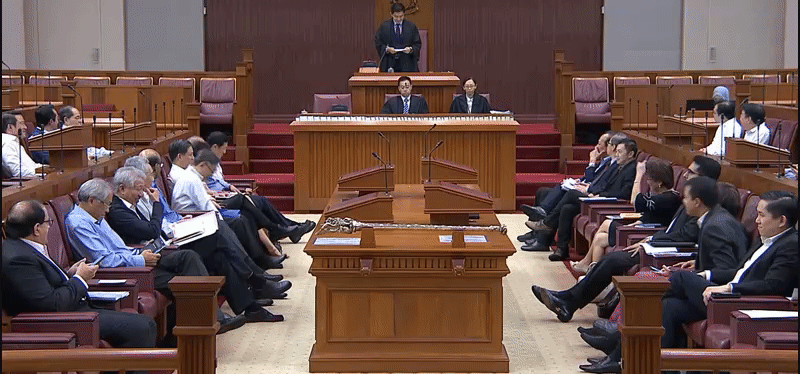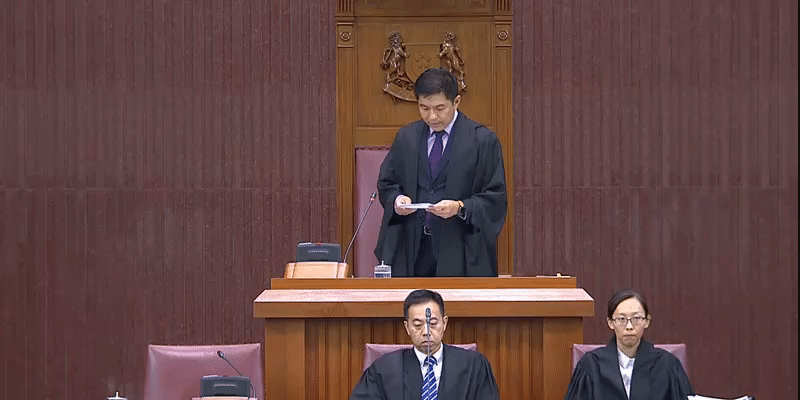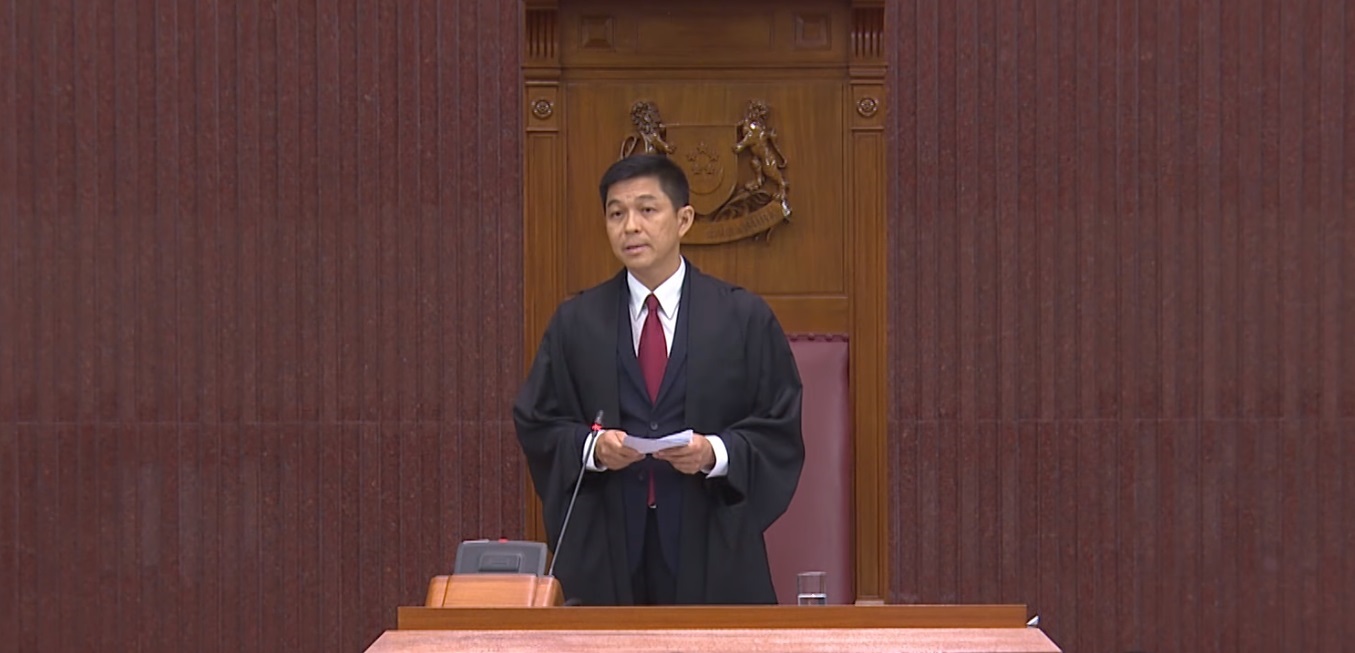It is a tradition for the Speaker of Parliament to have the last word at the Budget and Committee of Supply debates.
And many would remember Speaker Tan Chuan-Jin's memorable 2018 debut, when he joked about his secret to staying awake during the Budget debates and how Senior Minister of State Chee Hong Tat "spoil market" by speaking in Tamil.
Tan didn't disappoint this year.Tan: The Singapore Way
Tan started with a bang, joking that he spent the whole of last year thinking about what to say.

Tan subsequently drew more laughter from the House when he said that he was actually quite tempted to repeat the same speech from last year.
But there was a serious message behind the remark.
Tan said the temptation to repeat his speech was because "some fundamentals actually don’t change".
He said that Singaporeans must be at the heart of the work of every parliamentarian.
Tan subsequently suggested a larger point about Singapore's form of governance.
He referred to what Finance Minister and 4G leader Heng Swee Keat called the "Singapore Way" of governance.
Heng outlined the "Singapore way" of governing as:
- A people-centred approach to plans, strategies and programmes;
- Planning for the long-term while having an adaptive approach to changing circumstances and needs;
- Working together in partnership.
Slaughtering of a sacred cow
Anyway, nothing attracted more giggles than Tan's analogy of the slaughtering of the "sacred cow" of secondary school streaming.
But his explanation of how the secondary school streaming is eventually abolished is probably the most accurate sacred cow analogy of all.
Tan opened with the much-used analogy:
"In this COS, the well-being of one particular animal was at stake" (Check out Tan's parliament staff trying to keep a straight face).

Tan continued:
"Many supported the slaughtering of this particular sacred cow, including, surprisingly, Mr Louis Ng (Nee Soon GRC MP who is a vegetarian, called for secondary school streaming to be abolished).
Now, it sounds exciting, but actually, it may be quite disastrous if we do not understand why the cow was put out in the pasture in the first place.
Streaming changes, I think, are much welcomed but as (Education) Minister Ong Ye Kung explained, there was a reason for that cow."
The reason, as explained by Ong earlier in his Ministry of Education Committee of Supply speech, was that streaming was implemented in the 1980s and 1990s because students were losing interest in a one-size-fits-all education system.
Streaming was then introduced to reduce school attrition rates.
The aim had largely succeeded, as school attrition rates dropped from about a third of every cohort in the 1970s to less than 1 percent today.
Tan continued:
"While every cow is a good cow (slogan popularised by then Education Minister Heng), no cow is perfect. There are sometimes unintended consequences. Because over the years, we have learnt that it emits methane gas and so, therefore, it impacts the environment.
Tan was probably referring to some of streaming's drawbacks, which was mentioned by Prime Minister Lee Hsien Loong.
PM Lee said that streaming flaws include the lack of flexibility, and the increased likelihood of students in slower streams becoming demotivated.
Tan concluded with how streaming was eventually replaced with subject-based banding over the years:
"So over the years, as he has shared, we have sought to trim the cow, adjust its diet, sliced off its rump, have a little barbecue, its flanks... and finally we lay it to rest.
It’s a far less dramatic story, but I think a more accurate one and a recognition of the work done by many to get to where we are today.
I know that the slaying of sacred cows sounds bold, it sounds daring, even romantic perhaps. Dramatic changes always seem exciting, but I think it’s useful for us to also remember with a sense of perspective that that is not the objective.
Change is not the purpose. Better outcomes are."
Top photo from Gov.sg YouTube.
If you like what you read, follow us on Facebook, Instagram, Twitter and Telegram to get the latest updates.
